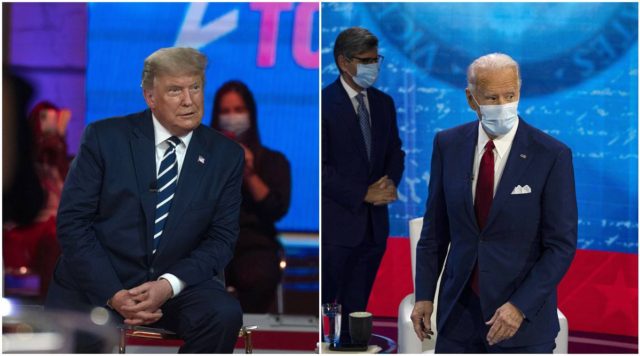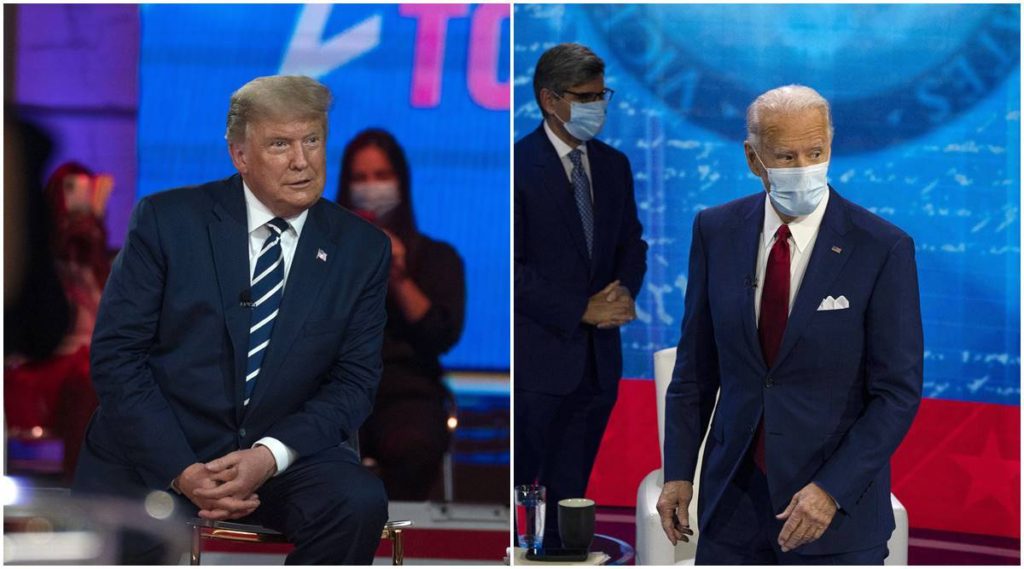Nigerians are generally dismayed by Trump’s latest travel ban, which severely restricts immigration to the United States from our country and five others. The reason given for this collective punishment is our government’s failure to share certain relevant security information with the United States and international security agencies. But the ban is not likely to dent the prevailing attitude toward Trump here. Trump polls tracking data on his popularity within the country has been consistent for the past three years, and the most recent survey, published by the Pew Research Center in January, shows that almost 6 in 10 Nigerians believe that Trump will “do the right thing regarding world affairs.”
Many Nigerians perception of Trump as tough, no-nonsense, blunt, pro-religion and entertaining could be in part why Trump polls show a majority of people in this deeply religious and most populous country in Africa like him. Like a fire eater, he swallows every challenge that comes his way. Each time it appears as if he’s down, he rises, seemingly stronger. Utterances that make Americans cringe don’t seem to faze him. Trump has spread more hatred of immigrants than any American in history
Trump once described African nations as “shithole” countries and this is evident in the African multitudes risking death by drowning to escape to Europe. In 2017, the bodies of 26 Nigerian young women and girls were recovered from the Mediterranean Sea, following their attempt to reach Europe in a rubber boat. Out of 181,000 migrants who arrived by sea to Italy from Libya in 2016, about 11,000 women and 3,000 children traveling were from Nigeria, according to the United Nations.
Nigerians have never been under any illusion about the world wanting to welcome random Africans with wide-open arms, but that has not stopped them from dreaming and trying anyway. In a 2018 Pew survey, 45 percent of Nigerian adults said they planned to move to another country in the next five years.
In recent times Nigerians have had cause to pray for God’s intervention, before and after acquiring a U.S. visa because it suddenly became a task more herculean than ever. People who have traveled freely to the United States for decades were suddenly being denied visas without explanation. Newspaper columns registered their shock and anger, and local media covered the alarming situation widely. Even securing an appointment at the U.S. Embassy has become difficult, with applicants sometimes waiting up to five months for a chance to be interviewed.
International media reports on the travel ban have described Nigeria with glittering phrases: It’s “Africa’s largest economy” with a “booming tech ecosystem,” whose migrants are “among the most educated and successful in the United States.” But it is also a greatly diverse country that has produced the Boko Haram terrorist group, which has pledged allegiance to the Islamic State and now parades as its West Africa arm. Majority of Nigerians know it would be unwise for Trump to pretend that threats from northern Nigeria don’t exist. He needs to protect Americans from Nigerians whom even Nigerians need to be protected from.
Most local frustrations about the travel ban are directed at the government of Muhammadu Buhari, rather than at Trump. Multiple local media reports have said that the Trump administration tried for more than a year to work with the Nigerian government to upgrade our country’s information-sharing procedures and avoid the ban. But Nigeria failed to meet the minimum security requirements for verifying travelers’ identities and singling out those who may pose a national security threat. “The current Nigerian administration may have its deficiencies and deep faults,” said Atiku Abubakar, an opposition leader and former presidential candidate, in an open appeal to the United States on Twitter, “but the Nigeria people ought not to be punished for their inefficiencies.”
As soon as the ban was announced, quick action replaced lethargy. Buhari immediately set up a committee to “study and address” the security requirements that will get Nigeria off the list. In a meeting with the U.S. State Department, Nigeria’s foreign minister, Geoffrey Onyeama, promised that the government would soon complete the process of making information on criminal history, links to terrorism, stolen passports and the like, available to Interpol and other relevant international agencies. It’s frightening to think that none of this was being done before now. Nigerians’ romance with Trump may end someday, but not over the travel ban.
Gift Joseph Okpakorese
Staff writer








